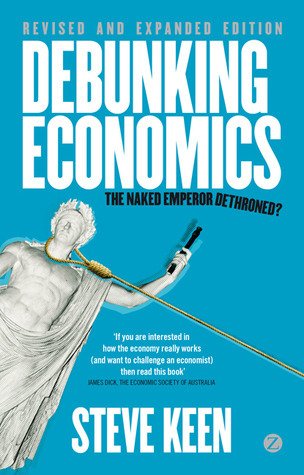What do you think?
Rate this book


554 pages, Paperback
First published January 1, 2001
“…science proceeds by the development of paradigms…followed by periods of volatility when the old paradigm strikes a series of anomalies it can’t resolve, leading to a scientific revolution in which a new paradigm is formed that can account for the anomalies.
But this process requires a degree of dispassionate separation between the empirical data and the theories.… But in economics, anomalies abound but simply aren’t even acknowledged, so attempts to resolve them simply don’t occur: the neoclassical paradigm just sails on oblivious to them.
My favourite here is the conflict between the neoclassical theory of the firm, which requires rising marginal costs, and the more than a hundred studies that have contradicted this… Rather than confronting this ‘anomaly’, neoclassical economists continue teaching and building models that assume rising marginal costs, and in fact the most (in)famous paper in methodology—Friedman’s ‘assumptions don’t matter’ paper—was written specifically to advise economists NOT to even read the empirical literature.”
“[A] model of the macroeconomy as consisting of a single consumer, who lives for ever, consuming the output of the economy, which is a single good produced in a single firm, which he owns and in which he is the only employee, which pays him both profits equivalent to the marginal product of capital and a wage equivalent to the marginal product of labor, to which he decides how much labor to supply by solving a utility function that maximizes the utility over an infinite time horizon, which he rationally expects and therefore correctly predicts. […] And there are no banks, no debt, and indeed no money in this model.”